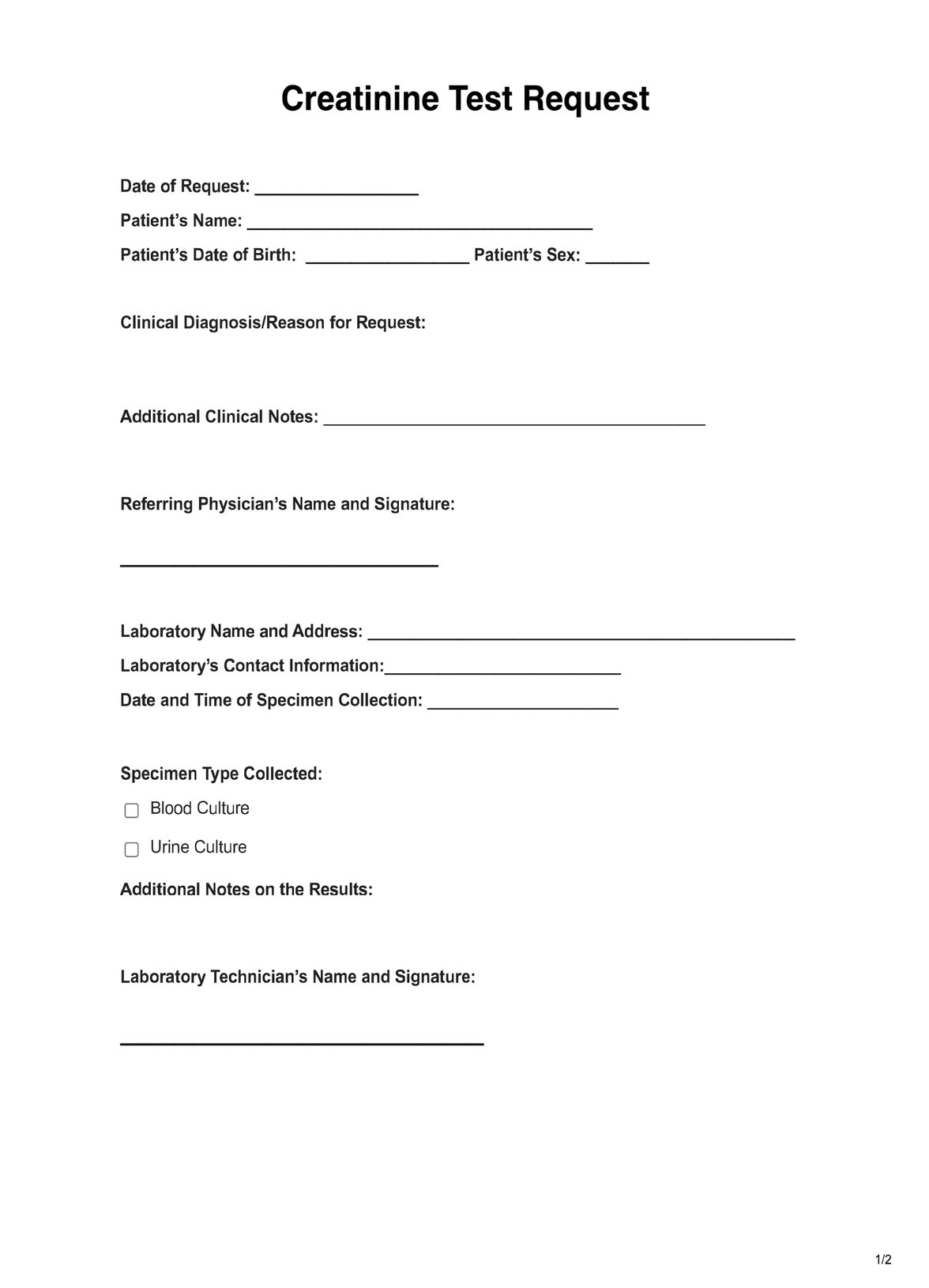General practitioners and nephrologists are most likely to request a creatinine test.

Creatinine
Know more about the purpose and function of creatinine tests and get a free request form template by clicking here.
Use Template
Creatinine Template
Commonly asked questions
Creatinine tests are used during a routine check, diagnosis, or monitoring of the patient??s kidney condition.
Collecting a blood sample for a creatinine test will only take a few minutes. However, obtaining test results, analyzing, and interpreting said results can take hours, depending on the practitioners in charge.
EHR and practice management software
Get started for free
*No credit card required
Free
$0/usd
Unlimited clients
Telehealth
1GB of storage
Client portal text
Automated billing and online payments











